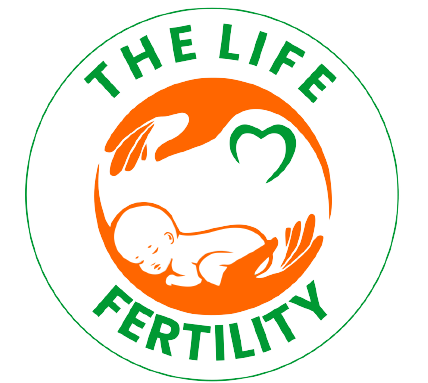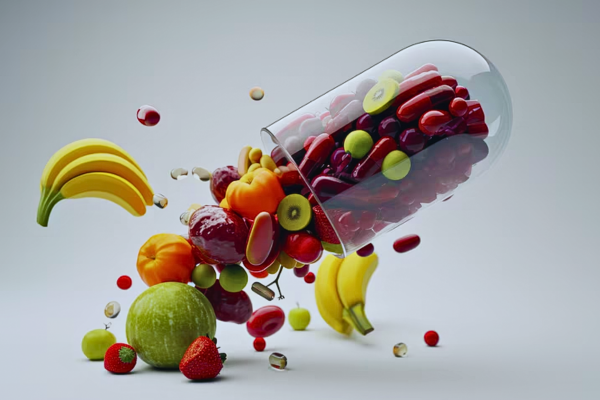Can Nutrition and Supplements Improve Sperm Quality?
Sperm quality is a cornerstone of male fertility. For couples trying to conceive, understanding and optimizing sperm health is often a key focus. The question many ask is direct: can what you eat and whether you take supplements genuinely make a difference to your sperm? The answer, backed by a growing body of research, is a resounding yes.
Strategic nutrition and the thoughtful use of certain supplements can indeed play a significant role in improving sperm quality naturally, influencing everything from sperm count to their ability to move and their overall shape.
Understanding the Key Factors of Sperm Quality
When evaluating male fertility, a semen analysis provides crucial insights into sperm health. This analysis focuses on several key factors. Sperm count, or the total number of sperm in a given sample, is a primary indicator of fertility potential. Equally important is sperm motility, which refers to the percentage of sperm that are actively moving and their ability to swim effectively towards the egg.
Finally, sperm morphology assesses the shape and size of the sperm; normal morphology is essential for successful fertilization. Understanding these fundamental semen analysis parameters is the first step in identifying areas for improvement and understanding how interventions might improve sperm quality. Addressing deficiencies in any of these areas can significantly impact a man’s reproductive capabilities.
The Power of Diet: Essential Nutrients to Improve Sperm Quality
The food we consume provides the fundamental building blocks for all bodily functions, including the complex process of sperm production. Several key nutrients have been directly linked to male reproductive health and the ability to improve sperm quality. Zinc stands out as vital for testosterone production, which in turn significantly influences sperm count, motility, and morphology.
Incorporating zinc-rich foods like oysters and nuts is a practical step. Folate (Vitamin B9) is crucial for cell growth and division, ensuring healthy sperm development; leafy greens and whole grains are good sources. Vitamin C, a powerful antioxidant, protects sperm from damaging oxidative stress, contributing to improved sperm quality and their ability to move.
Citrus fruits are readily available sources. Vitamin D has been associated with testosterone levels and overall sperm health, making fatty fish a beneficial dietary addition. Vitamin B12 plays a key role in DNA synthesis, essential for healthy sperm. Found in meat and dairy, it’s important for overall sperm health.
Finally, Omega-3 fatty acids, abundant in fatty fish and flaxseeds, are integral to sperm membrane health and can significantly improve sperm motility. A diet rich in diverse antioxidants, found in berries and dark leafy vegetables, further supports efforts to improve sperm quality by combating free radical damage.
Top Supplements to Boost Sperm Health and Improve Sperm Quality
While a nutrient-dense diet forms the foundation for healthy sperm, certain supplements can provide targeted support to further improve sperm quality. Zinc supplements can be beneficial when dietary intake is insufficient to meet the body’s needs for optimal sperm production. Vitamin C supplements offer a concentrated dose of this crucial antioxidant, bolstering protection against sperm damage.
For individuals with low levels, Vitamin D supplements may help support overall sperm function. Omega-3 supplements provide a convenient way to ensure adequate intake of these essential fatty acids, particularly beneficial for improved sperm motility. Research suggests that Selenium supplementation can positively influence sperm motility, concentration, and even morphology.
CoQ10 is another supplement that may enhance various sperm parameters, contributing to overall improved sperm quality. Lastly, while some studies explore the potential of D-Aspartic Acid (D-AA) to impact testosterone and sperm parameters, it’s crucial to discuss its use with a healthcare professional. It’s paramount to remember that consulting a doctor before starting any new supplement regimen is essential for safe and effective strategies to improve sperm quality.
Incorporating Foods That Naturally Improve Sperm Quality
Beyond focusing on individual nutrients, incorporating specific foods known for their beneficial properties can naturally improve sperm quality. Oysters are renowned for their high zinc content, a cornerstone of healthy sperm production. Fatty fish like salmon and mackerel are rich in omega-3 fatty acids and vitamin D, both vital for sperm health and motility.
Berries, packed with antioxidants, help protect sperm from damage. Dark leafy greens provide essential folate and a range of antioxidants that support healthy sperm development. Nuts and seeds offer a good combination of zinc, omega-3s, and antioxidants, contributing to overall sperm health.
Tomatoes are a significant source of lycopene, an antioxidant associated with improved sperm health. Bananas contain vitamins C, A, B1, and bromelain, which may positively influence sperm. Even dark chocolate, in moderation, offers antioxidants that could benefit sperm health. Regularly including these foods can be a delicious and effective way to naturally improve sperm quality.
Foods and Habits to Limit to Protect, and Improve Sperm Quality
Just as certain foods can benefit sperm health, others and particular habits can hinder efforts to improve sperm quality. Excessive alcohol consumption can negatively impact sperm production and overall sperm health. Smoking is detrimental, damaging sperm DNA and reducing both sperm count and motility. High caffeine intake, especially in excessive amounts, may also negatively affect sperm parameters.
A diet heavy in processed meats often contains high levels of unhealthy fats that can be detrimental. Excessive consumption of soy products may introduce phytoestrogens, potentially interfering with hormone balance. Similarly, a high intake of saturated and trans fats has been linked to poorer sperm quality.
Finally, excessive sugar intake can contribute to inflammation and hormonal imbalances, both of which can negatively affect sperm health and the ability to improve sperm quality. Limiting or avoiding these substances and habits is a crucial step in protecting and enhancing male fertility.
Beyond Diet: Lifestyle Changes to Improve Sperm Quality
While nutrition plays a pivotal role, other lifestyle factors significantly influence sperm health and the ability to improve sperm quality. Regular exercise can improve hormone balance and overall well-being, both of which positively impact sperm production. Adequate sleep is essential for proper hormone regulation, crucial for healthy sperm development.
Effective stress management is also key, as chronic stress can negatively affect sperm parameters. Avoiding exposure to environmental toxins, such as certain pesticides and chemicals, can help protect sperm health.
Finally, maintaining a healthy weight is important, as obesity can disrupt hormone levels and negatively impact various aspects of sperm quality. Addressing these broader lifestyle factors complements dietary changes in the journey to improve sperm quality.
Conclusion
In conclusion, the path to improve sperm quality is multifaceted, with nutrition and supplementation forming critical pillars. By understanding the essential nutrients and incorporating beneficial foods, men can actively support their reproductive health. Thoughtful supplementation can further enhance these efforts. However, it’s equally important to address lifestyle factors and limit detrimental habits.
A comprehensive approach, integrating a balanced diet, a healthy lifestyle, and informed supplement use, offers the most effective strategy to naturally improve sperm quality. Consulting with healthcare professionals for personalized guidance is always recommended for optimal results.
Are there any specific supplements that are most effective at improving sperm motility?
Several supplements have shown promise in supporting improved sperm motility, including Omega-3 fatty acids, CoQ10, and L-carnitine. These nutrients can support sperm cell energy production and membrane health, both crucial for movement. However, individual responses can vary, and consulting a healthcare professional for personalized recommendations is advisable.
How long does it take to see improvements in sperm quality through diet and supplements?
The process of sperm production (spermatogenesis) takes approximately 74 days. Therefore, consistent dietary changes and supplementation may require at least three to six months to yield noticeable improvements in semen analysis parameters. Patience and consistency are key when aiming to improve sperm quality.
Can diet alone significantly improve sperm quality?
Yes, a nutrient-rich diet provides the fundamental building blocks and protective antioxidants necessary for healthy sperm production and function, playing a crucial role in efforts to improve sperm quality. Focusing on whole foods rich in zinc, folate, Vitamin C, and Omega-3s can make a substantial difference.
Can I improve sperm morphology with diet and supplements?
While sperm morphology can be influenced by various factors and might be more challenging to directly impact through diet and supplements alone, ensuring adequate intake of zinc and antioxidants can contribute to overall sperm health and potentially support better morphology over time. A holistic approach is generally most effective.
Is it possible to improve low sperm count naturally?
Yes, adopting a healthy lifestyle, prioritizing a nutrient-dense diet rich in key minerals and vitamins like zinc and folate, and considering specific supplements may contribute to naturally improving low sperm count. Addressing underlying factors and seeking medical advice is also important.
Are there any foods I should completely avoid if I want to improve my sperm quality?
It’s generally advisable to significantly limit or avoid processed foods, excessive alcohol consumption, smoking, and high intakes of saturated and trans fats, as these can negatively impact sperm health and hinder efforts to improve sperm quality. Moderation and a focus on whole, unprocessed foods are recommended




